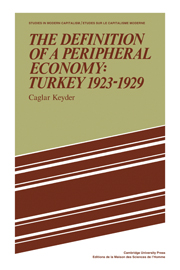Summary
Theoretical introduction
The theory of peripheral capitalist development in its Marxist version has received a new impetus in the past decade. The study of pre-capitalist modes of production, historical research on specific social formations transforming under the impact of capitalism, and theoretical attempts to formulate a unified framework of world capitalist development have increased our ability to approach the problems posed by non-autonomous developments of capitalism. Such an approach derives directly from Rosa Luxemburg's problematic. Accordingly, the principal attention is focussed on the expansion of capitalism and the ensuing transformation of previously non-capitalist areas. Questions concentrate on the modes of integration of pre-capitalist formations into the capitalist system; and on the resulting patterns of development.
Capital expands its area of operation in its search for higher profits. In the process it penetrates and transforms previously traditional economies, and it fosters the development of commodity production. The result is the expansion of the world market and the imposition of new patterns of specialisation on the new areas. By entering the world division of labour such areas lose their internal articulation to constitute part of the larger unit of the world market. Therefore, the unit of analysis relevant for the understanding of capital accumulation becomes the entire capitalist market, including the new periphery. This growing capitalist economy, however, is not homogeneous: various sub-units are assigned differentiated and hierarchical positions. Accumulation on the world scale implies the extraction of maximum profits by capital within this hierarchical framework.
- Type
- Chapter
- Information
- Publisher: Cambridge University PressPrint publication year: 1981

